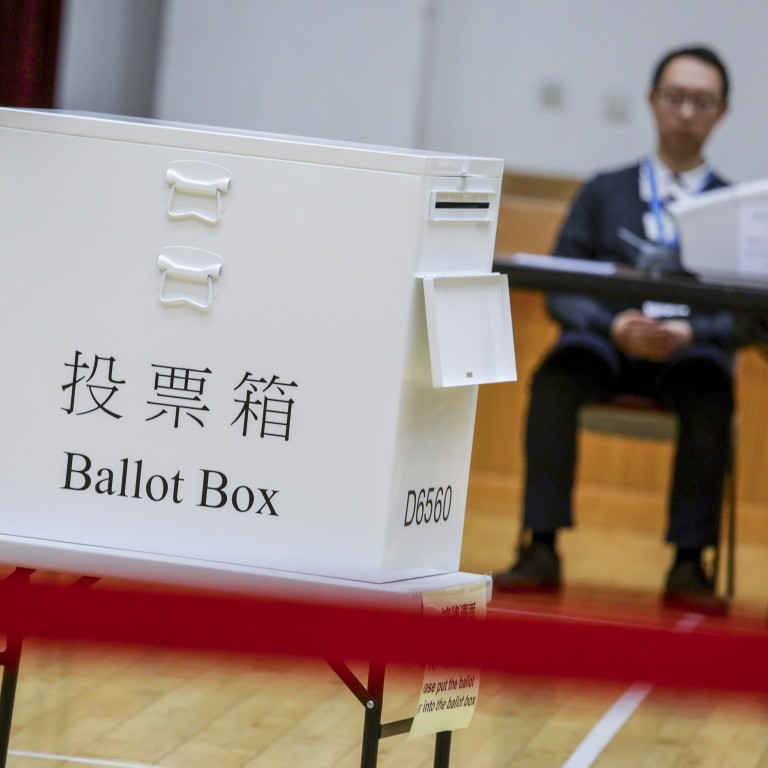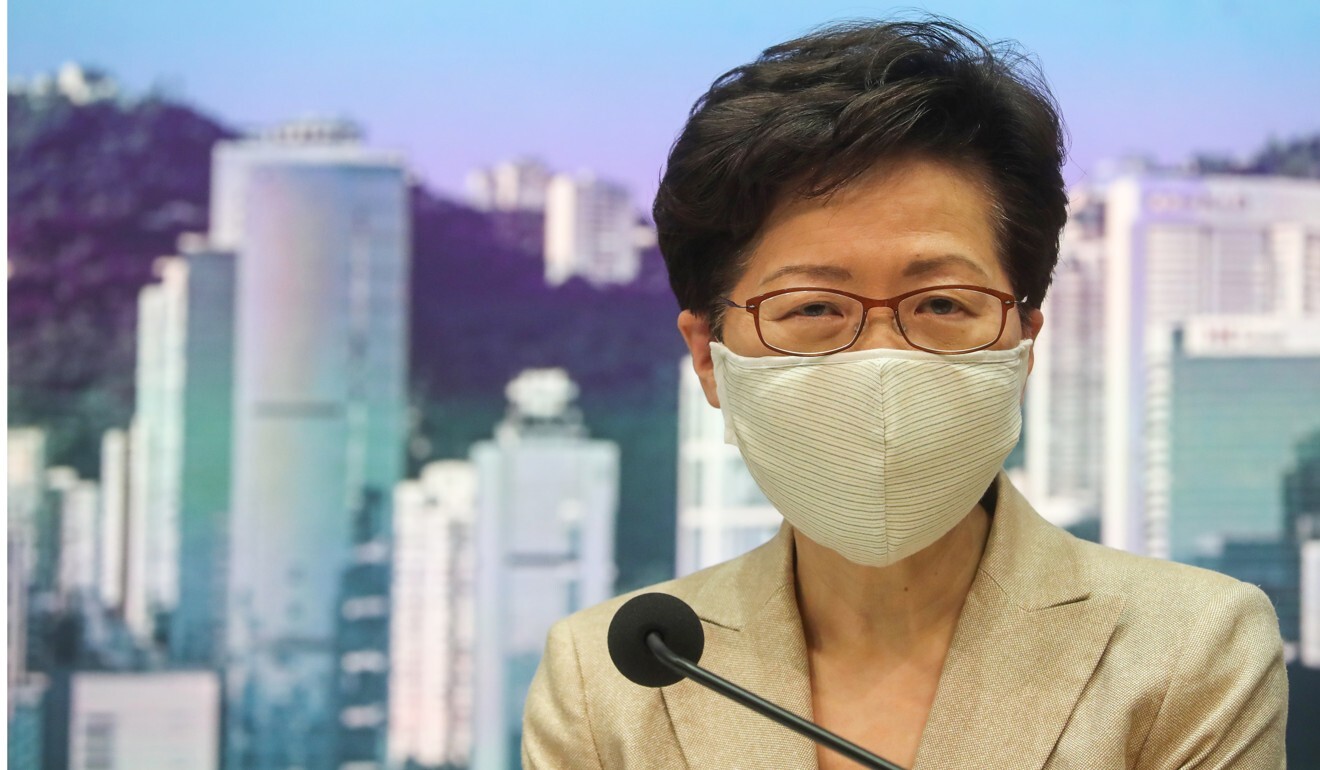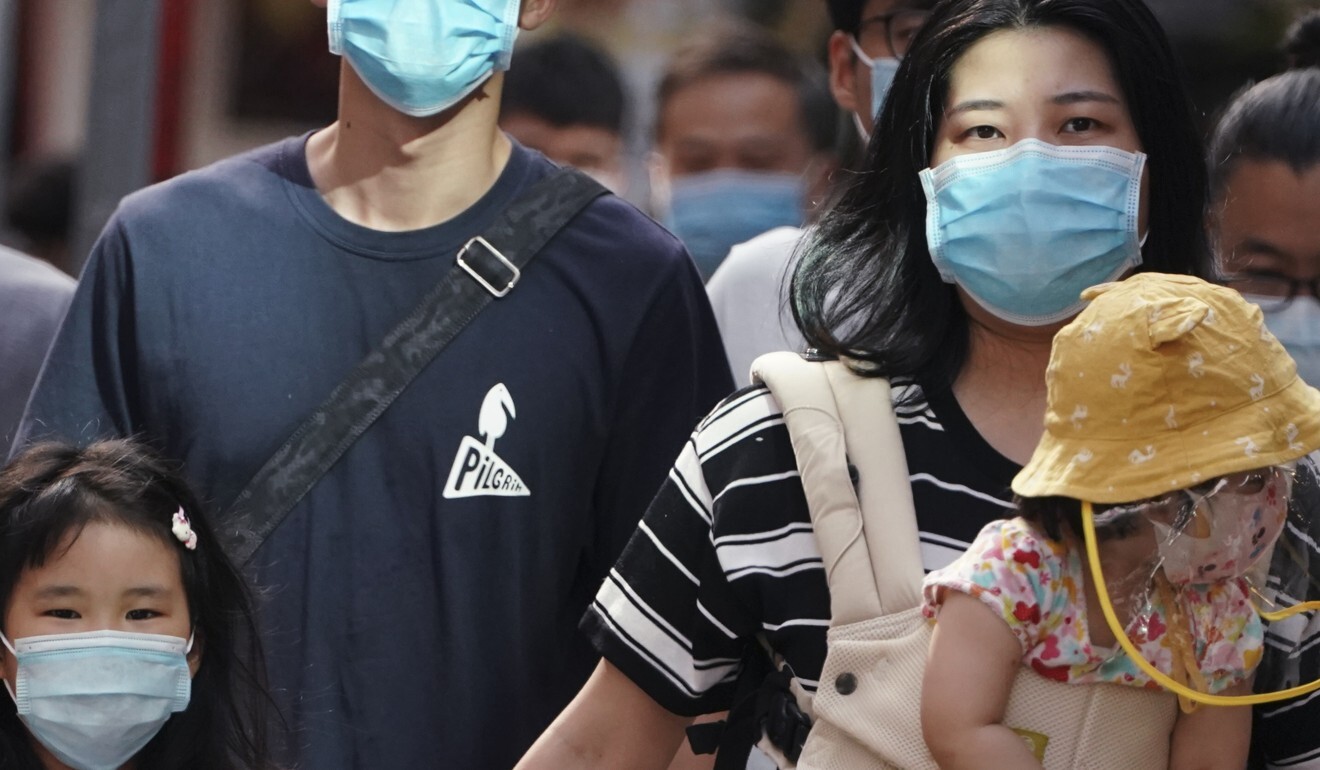
Explainer | Hong Kong third wave: will Legislative Council elections be postponed as Covid-19 cases spike? And who makes the call?
- Hongkongers are set to go to the polls on September 6, but some have called for a postponement, with no end in sight to the coronavirus pandemic
- Elections can be put on hold if they are likely to be obstructed, disrupted or seriously affected under three types of occurrences
How did Hong Kong’s third wave of Covid-19 infections start?
Since April, pro-establishment lawmakers have also been urging the government to consider such action, with no end in sight to the pandemic.

Are there any legal grounds for postponement? Who makes the final decision?
Under existing law, Legco elections may be postponed if the chief executive considers the polls likely to be obstructed, disrupted or seriously affected by three types of occurrence: namely a typhoon or other climatic condition of a serious nature; a riot, open violence or any danger to public health or safety; or an incident which appears to be a material irregularity relating to the elections.
Pro-Beijing politicians call for Legco polls to be put on hold amid Covid-19 crisis
The government has set up a crisis management committee, which comprises Electoral Affairs Commission members and officials such as Secretary for Constitutional and Mainland Affairs Erick Tsang Kwok-wai, to handle problems related to the elections. The committee is chaired by EAC chairman Barnabas Fung Wah.
The commission will make recommendations to the chief executive or decide to postpone the polling and/or counting of all votes or those within a constituency, if it is satisfied with the assessment that any of the three scenarios has occurred.

02:52
Officials tightens restrictions again as Hong Kong reports record-high Covid-19 cases
If the elections are postponed, they must be held no later than 14 days after the original polling day on September 6. The Constitutional and Mainland Affairs Bureau in May said the Registration Electoral Office, responsible for conducting elections in Hong Kong, would make contingency plans to hold the resumed polls on September 13.
A spokeswoman for the bureau on Tuesday said it will be making backup plans for the September polls, as the Covid-19 epidemic was unlikely to subside in the short term.
“We will be assessing the impact that the pandemic could cause to the election, and making contingency plans as soon as possible,” she said.
“We will also closely liaise with the Food and Health Bureau and the Centre for Health Protection, and closely monitor the development of the epidemic.”

Ronny Tong Ka-wah, a member of Lam’s cabinet, said the government did not have strong legal grounds to postpone the polls beyond September unless it invoked the Emergency Regulations Ordinance or the Prevention and Control of Disease Ordinance, citing threats to public health.
“But such drastic moves would be subject to legal challenges,” he said. “My view is that the elections should go ahead as scheduled unless the intensity of the pandemic we witnessed since last week continues into early September.”
Tong was optimistic the worst-case scenario would not occur.
Hong Kong reports 73 new Covid-19 cases, several tied to existing clusters
The Emergency Regulations Ordinance, introduced in 1922, grants the city’s leader the authority to “make any regulations whatsoever which he [or she] may consider desirable in the public interest” in case of “emergency or public danger”.
In October last year, the government invoked the colonial-era law to ban people from wearing masks at public assemblies, as it struggled to get a grip on spiralling protest violence.
What factors could trigger a postponement?
Ivan Choy Chi-keung, a political scientist at Chinese University, said the worsening pandemic might offer a good excuse for the government to postpone the elections.
“Civil servants were asked to work from home from Monday and the case for postponing the elections would be even stronger if the government takes drastic measures such as banning residents from leaving their homes,” he said.

Li Xiaobing, a Hong Kong specialist and law professor at Nankai University in Tianjin, said it would be justifiable for the Hong Kong government to postpone the elections for six months if there was a daily coronavirus caseload beyond 100 in the run-up to the polls.
During the legislature’s house committee meeting last week, several pro-establishment lawmakers grilled officials over the progress of the health code system which, if implemented, would lift border restrictions for residents who have been certified virus-free.
The lawmakers, including Junius Ho Kwan-yiu, pointed out that without the health code, hundreds of thousands of Hongkongers currently residing on the mainland might not be able to cast their votes in September.
Could people gathering for campaigning or voting risk raising the infection rate?
It did not provide evidence supporting that statement, which was immediately denounced by the camp as baseless.
Joshua Wong, other Legco hopefuls refuse to sign allegiance declaration
University of Hong Kong microbiologist Dr Ho Pak-leung told a radio programme on Tuesday there were no known clusters in Hong Kong relating to people queuing.
Instead of postponing the elections, he said there were a range of preventive measures the government could adopt to minimise the risks, such as increasing the number of polling stations and their opening hours.
Will Beijing and the Hong Kong government consider lessons learned from the district council elections?
Officials listed benchmarks such as the scale and intensity of the mayhem and whether the MTR Corporation would be forced to halt rail services.
Beijing will face enormous pressure from the international community if the Legco elections are postponed
In a closed-door meeting in Shenzhen on November 15, Chinese Vice-Premier Han Zheng asked all relevant departments involved in handling Hong Kong affairs to do their best to ensure the district polls could be carried out, according to sources.
Han, who chairs the Communist Party’s Hong Kong and Macau affairs central coordination group, is China’s point man on matters in the two cities.

05:45
Hong Kong’s pro-Beijing camp reeling after crushing defeat in district council elections
Some key figures in the pro-establishment camp blamed the government for holding the elections as scheduled and criticised Beijing’s then liaison office director Wang Zhimin for failing to use his authority to urge a suspension.
Half of Legco’s 70 seats will be contested in geographical constituencies, while the rest will come from trade-based functional constituencies.

But Professor Ray Yep Kin-man, a political scientist at City University, said he did not believe the fortunes of the pro-establishment camp would improve significantly even if the elections were postponed for three or six months.
“Beijing will face enormous pressure from the international community if the Legco elections are postponed,” he said.
Yep added that Beijing and the Hong Kong government could use methods such as disqualifying opposition candidates to prevent them from conquering more than half of the seats in the legislature. “There is actually no need for Beijing to postpone the elections,” he said.
What happens if the elections are postponed beyond September?
The existing laws in Hong Kong do not state what would happen if the Legco elections were postponed beyond September. Li Xiaobing said the government could consider extending the tenure of serving lawmakers for a certain period to maintain Legco operations, before elections could be held. But he said the idea of appointing a provisional legislature would be “too controversial”.
In 1996, Beijing formed a provisional legislature in Hong Kong after the “through-train” arrangements – under which members of Hong Kong’s last Legco were to become members of the Special Administrative Region’s first legislature – were derailed.
Will Hong Kong be the first place to hold elections under the shadow of the pandemic?

